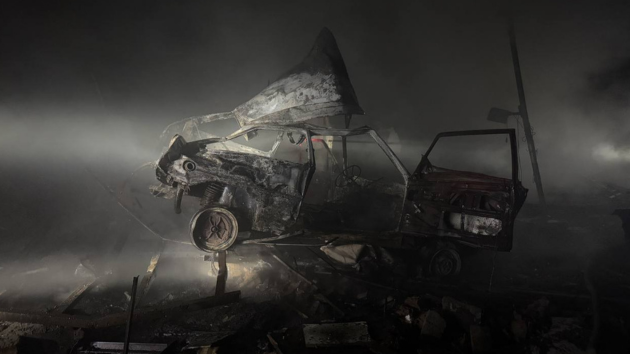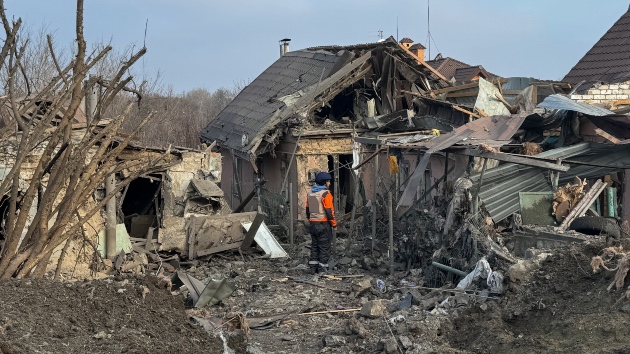Protesters gather at impeached South Korean president’s residence, as arrest warrant nears expiration
Written by ABC Audio ALL RIGHTS RESERVED on January 5, 2025
(SEOUL) — Thousands of South Korean citizens were gathering on Sunday near impeached President Yoon Suk Yeol’s residence a day before an arrest warrant for him expires.
Protesters from both sides — one calling the warrant invalid or illegal and the other shouting for arrest — have occupied the wide four-lane road in a normally quiet neighborhood, blocking all traffic, in freezing temperatures and snow.
The effort to detain Yoon came after a South Korean court issued an arrest and search warrant on Dec. 31 over his short-lived imposition of martial law, ABC News confirmed. Yoon has been suspended from his position since Dec. 14.
The warrant is valid until Jan. 6, Yonhap reported, meaning investigators hoping to serve it would have to attempt to detain the president again by Monday.
Yoon declared martial law in a televised speech on Dec. 3. The president said the measure was necessary due to the actions of the country’s liberal opposition, the Democratic Party, which he accused of controlling parliament, sympathizing with North Korea and paralyzing the government.
Animosity has been sky-high between the two sides, after over 100 investigators from the CIO anti-corruption agency and the police retreated from the residence after a tense standoff with the presidential security service.
Yoon’s die-hard supporters have been camping on the street vowing to protect him from “pro-North Korean forces about to steal away the presidency.” Anti-Yoon protesters who are backing of the opposition party claim that Yoon must be jailed for insurrection.
Arrest warrant questioned
Many law experts question the validity of the warrant, which specified that certain key provisions of South Korea’s Criminal Procedure Act should be excluded, which meant the police could search the military and government-classified presidential residence.
This court order is widely seen as a first-ever and as being highly irregular, along with being criticized by some as being outside the limits of the judiciary’s authority, violating the principles of separation of powers.
Typical search warrants include clear parameters of space, time and items to retrieve but excluding the application of legal provisions entirely is unprecedented, experts say.
Yoon’s declaration of martial law had sparked protests, and hours after the declaration, the National Assembly voted to demand that the president lift the martial law order. A majority of parliament — all 190 members who were present, out of the 300-person body — voted to lift the decree — requiring that it then be lifted, under the South Korean constitution.
Following the National Assembly’s vote, Yoon said he withdrew the troops that had been deployed to carry out martial law and “will lift martial law as soon as we have a quorum in the cabinet.” The State Council then convened to vote to officially lift it.
The country’s Democratic Party called on Yoon to resign following what it called the “fundamentally invalid” declaration of martial law. Without Yoon resigning, the opposition party worked to enact impeachment proceedings against the president.
Yoon has been suspended from his position since Dec. 14, when the National Assembly voted for his impeachment in a 204-85 vote.
Presidential security service facing charges
While politicians and lawyers argue heatedly over the validity of the warrant in higher courts, the Presidential Security Service has found itself in the limelight.
The CIO has been leading a joint investigation with police and prosecutors, but say detaining Mr. Yoon would be “virtually impossible” as long as he is protected by the security team.
CIO and the opposition party are seeking charges against the head of the president’s security team for obstruction of justice after the police were blocked from entering the residence on Friday.
The security team formed a barricade comprising about 10 buses and vehicles, at one point forming a human chain of about 200 officers to block access, according to CIO.
The opposition has criticized the president’s security team as being over-excessive and summoned the chiefs and deputy chiefs. The Presidential Security Service defied the order, citing that this is not the time to leave their positions.
“Some media and political circles are saying that the Presidential Security Service is a private soldier (to President Yoon),” Park Chong-Jun, Head of Presidential Security Service, said in a video press release. “I can’t help but feel terrible and sad as the presidential security officer”.
He added that fake news reports of him ordering to fire with live ammunition are “absurd claims,” there was no violence on Saturday, and that they should not be forced to be associated with political ideology.
ABC News’ Somayeh Malekian contributed to this report.
Copyright © 2025, ABC Audio. All rights reserved.






